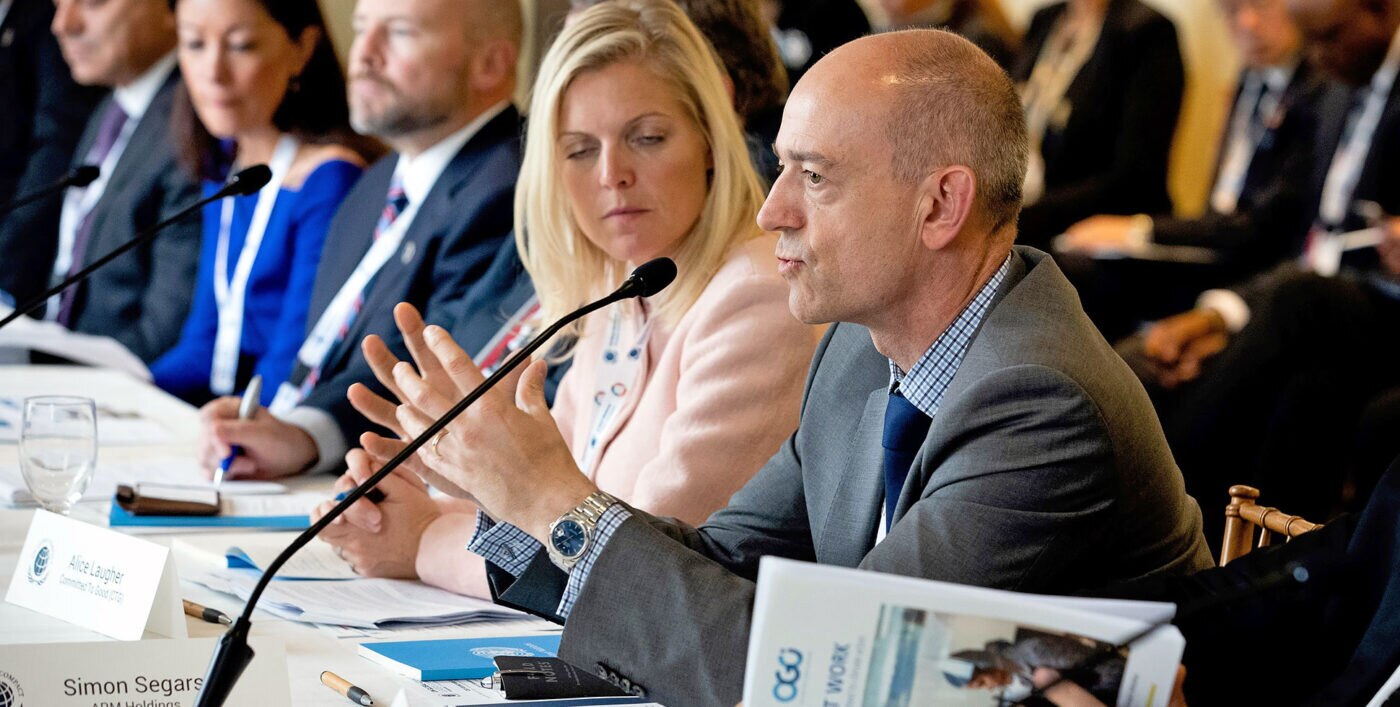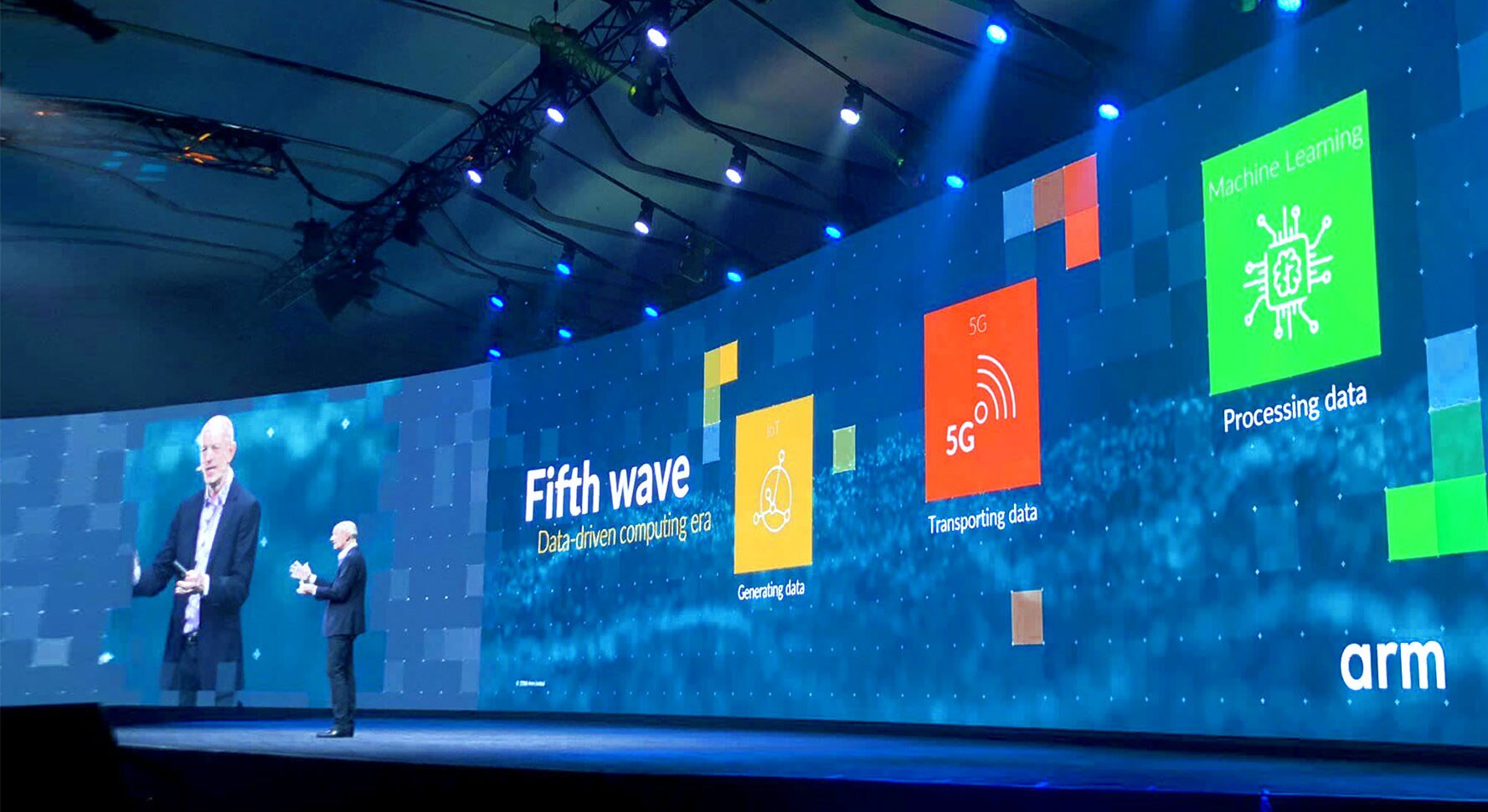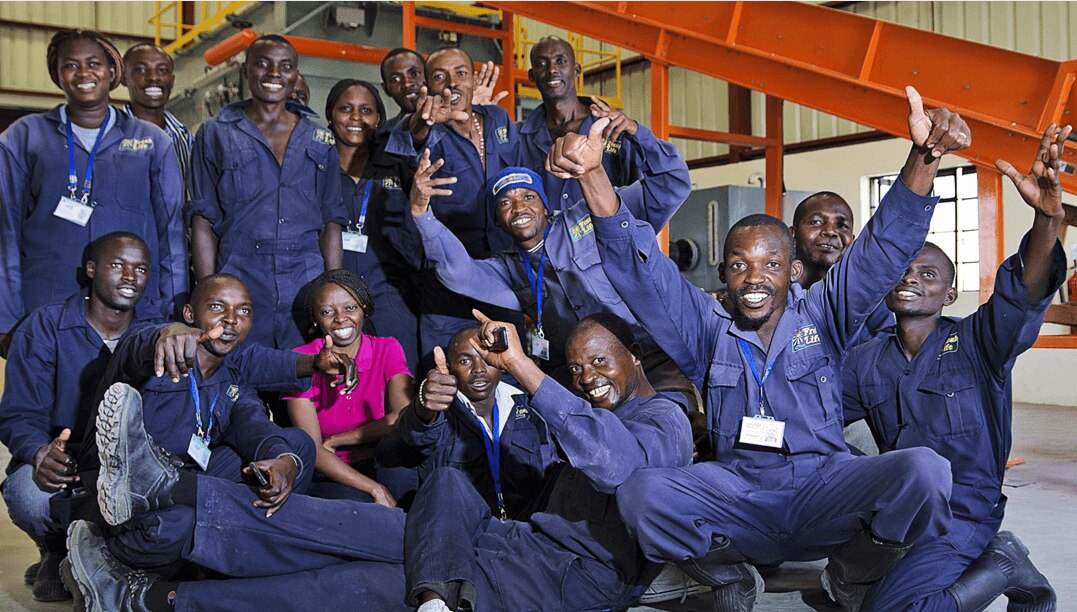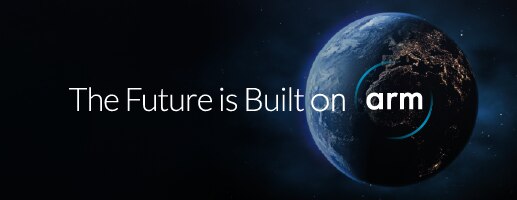2030Vision: The Tech Sector’s Vital Role in Realizing the Global Goals

Simon Segars talks about supporting the Global Goals at the United Nations General Assembly in 2018
Delivering the United Nations’ Global Goals by 2030 will require extensive collaboration across the private sector, governments and civil society. It will require significant investment and innovation as well as fresh thinking about economic paradigms and business models.
We know that achieving the Global Goals, also known as the Sustainable Development Goals (SDGs), is a moral imperative. But there are also significant commercial opportunities available for those willing to see them, estimated at $12 trillion a year globally in revenue and cost savings and 380 million new jobs by 2030. Research indicates that 66% of the world’s population will be living in cities by 2050. We need to recognize the commercial opportunity this offers, but also be mindful that through collective efforts to deliver impact at scale we ensure no one is left behind.
At Arm, we believe business can and should be making the relevant investments to unlock these opportunities, and in doing so advance the Global Goals. Digital technology will be a critical enabler to realize this market opportunity, so it is in our interests to explore it. We know from experience that digital solutions can address the Global Goals whilst delivering value and we want to encourage others to do the same.
Uniting the tech sector
For this reason, in 2017 we founded 2030Vision, a partnership that connects business, public sector and non-governmental organizations (NGOs), academia and governments with the technology solutions needed to realize the Global Goals. Chaired by Arm, the founding partners were the UN Global Compact, UNICEF, The New York Academy of Sciences, SustainAbility, Fauna & Flora International, the Centre for Global Equality, Cambridge Judge Business School, British Council, Be He@lthy and Be Mobile (A joint World Health Organization (WHO) and International Telecommunications Union (ITU) initiative). Ensuring that 2030Vision is driven by the Goals is critical to its success. We chose to build this foundation before starting to recruit our fellow technology companies to work with us.
 | Read more: Simon Segars on how the Fifth Wave of Computing will play a fundamental role in realizing 2030Vision |
In 2018 we began talking to other companies about the need for greater collaboration on the Goals and developing our strategy for 2030Vision. We now have private sector partners: Microsoft, SAP, Salesforce, SAP, UBS, and Facebook have joined so far. We are working together to go beyond social impact projects and try to define what it is we can do together that we could not achieve individually.
2030Vision can help us ask critical questions to improve sustainability, for example: How can artificial intelligence (AI) support all the Global Goals? How can we bring 21st Century skills into the classroom and ensure the next generation is properly trained? How do we ensure there are sufficient job opportunities as technology evolves? How can the Internet of things (IoT) and connected devices allow more scalable services to a growing population? These questions and many more.
Transformative technology for good
2030Vision is a foundation for new partnerships and innovation to help all of us to create a better future. It can transform the use of technology so that all people can live their lives to their full potential while at the same time unlocking commercial opportunities. We aim to do this through collaboration, innovation and implementation.
Achieving the Global Goals will require digital technologies to be developed and deployed to address the challenges we face. Digital has already enabled the beginning of democratized and decentralized access to energy, finance and education. However, we do not know the scale of impact these transformations could have on production, employment, health and prosperity.
 |
This opens a range of questions to be explored and answered: Could AI drive radical improvements in agricultural productivity and product design? Could sensors help eliminate overfishing and improve economic opportunity? How might blockchain revolutionize privacy, security and trust?
Arm is looking to a future of a trillion connected devices enabled by what I call the Fifth Wave of Computing – the convergence of AI, the IoT and 5G infrastructure. These trillion devices will be central to managing energy systems, water usage, traffic flows, retail stock, harvesting crops, revolutionising our health sector to make it more personal to the individual. We believe in a future where the benefits of technology are available to everyone in the world, not just the wealthiest.
Getting this right, making sure we understand the issues our technology is trying to solve, should be important to the whole of the technology sector. This is our commercial future and the future for our planet and everyone who lives here.
Learn more about the Sustainable Development Goals and how the technology sector can help to change the world, or support the extraordinary initiatives being developed as part of 2030Vision.
Any re-use permitted for informational and non-commercial or personal use only.












